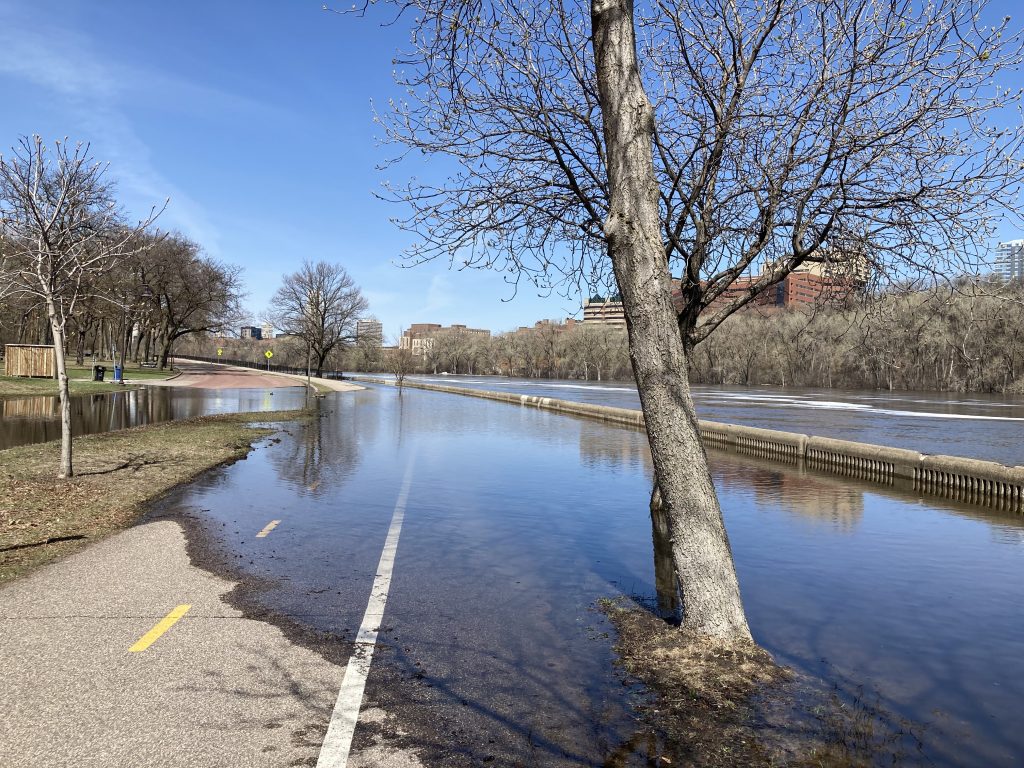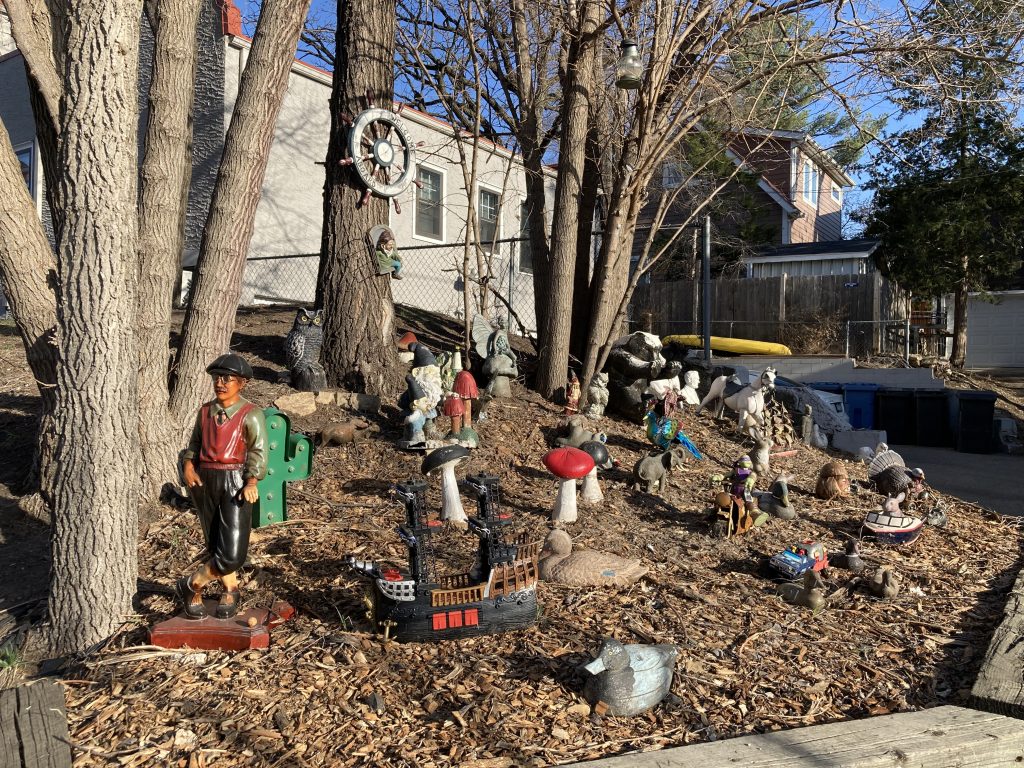5.3 miles
franklin hill turn around
44 degrees
Great weather for a run! Sunny, low wind, crisp air. Felt strong, relaxed, steady. Kept track of the river as I ran north. Decided I’d run as far on the river road trail as I could before it was closed for flooding. I made it to the bottom of the hill. Wow! How long before the river crests? I looked it up; not until Sunday. Wow! The river is rising because of how fast the snow melted last week.
Before heading back up the hill, I checked out the water and took a picture:

A few other people — some walkers, 2 dogs, a runner with a jogging stroller — were down here checking it out too.
As I ran north, I listened to the birds, the traffic, the silence. Heading back up franklin hill and running south, I listened to Taylor Swift’s 1989.
Shadows!
First it was the shadow of a bird flying over my head. Then my sharp shadow just in front of me. Then sprawling tree shadows stretched across the trail. I started seeing shadows everywhere and thinking about how they help me to navigate the world — how, when I can’t see something, I might be able to see its shadow cast on the sidewalk. I feel like there was another distinctive shadow, but I can’t seem to remember what it was.
Rust
At the very end of the run, Taylor Swift’s “Bad Blood” came on and I heard these lines:
I was thinking that you could be trusted
Did you have to ruin
What was shiny? Now it’s all rusted
And I remembered, yes, I’m very interested in rust as a color too. I last mentioned in on March 13, 2023 with Schuyler and ED’s “elemental Rust.” I’m thinking of it less as a color-as-noun (like brownish reddish orange), more as color-as-verb and in relation to erosion, decomposing, crumbling — this is where it connects with texture. Does this make any sense, even to me? Not sure, but it seems helpful to think of rust in relation to shiny. Are they in contrast to each other? Only if you imagine shiny and sparkling as new, which isn’t always the case.
Currently, I’m in the weird, all-over-the-place space with my 8th Ishihara plate poem. Trying to consider different possibilities, not shut out ideas, letting my mind meander and take strange (wrong?) turns. This morning I had big ideas about creating a playlist of sparkling, shimmering, dazzling, glittering songs that could help me to find a way into the poem (this method worked with listening to frank ocean’s channel ORANGE as I wrote orange). Not sure it’s working, it’s harder to find “glitter” songs that aren’t by Mariah Carey. Plus, I do better when my inspirations are more slanted, less direct, less literal.
In the hopes of offering a little focus, here are some non-music inspirations and ideas I’m currently drawing from and that I’ve listed in my notes:
1
Eamon Grennan’s beautiful silver ribbon in “Lark-Luster”: when summer happens, you’d almost see the long silver ribbons of song the bird braids as if binding lit air to earth that is all shadows, to keep us (as we walk our grounded passages down here) alive to what is over our heads—song and silence—and the lot of us leaning up: mind-defeated again, just harking to it.
2
Tell me how do I steady my gaze when everything I want is motion? Saccadic Masking/ Paige Lewis
3
dazzle
razzle-dazzle
radiate
gleam (as in gleaming bronze)
glimmer
spangle
catch the light
twinkle
glint
reflect, echo, bounce
4
texture — unsteady rough, not smooth ridged, not flat, patterned — and its influence on light: bird feathers, wind on water/waves, crumbling pavement potholes asphalt pools (puddles), gray depressions — holes/pits in snow casting shadows that look gray
5
heat energy flame burn flicker flare: a. giving forth dazzling, unsteady light, b. sudden outburst, short-lived, intense, c. gradual widening, spreading out, display in expanded form
6
A. R. Ammons and another wordless language, not made up of reds and blues and yellows: mutual glistening in a breezy grove of spring aspen speech
There are more influences to come, but I’ve run out of time, so I’ll stop at 6.
